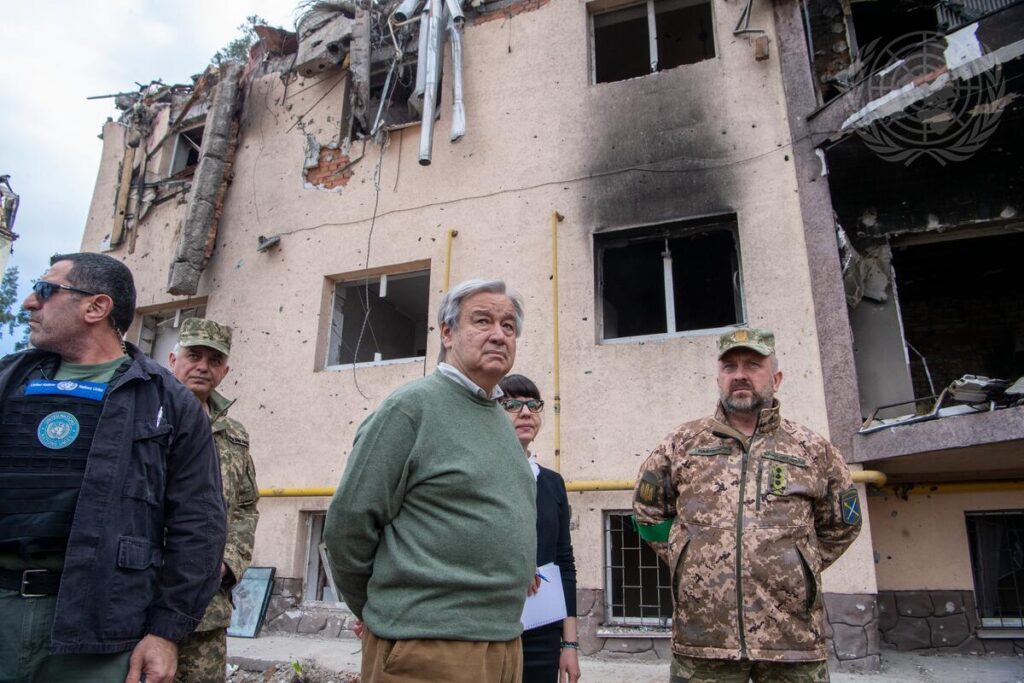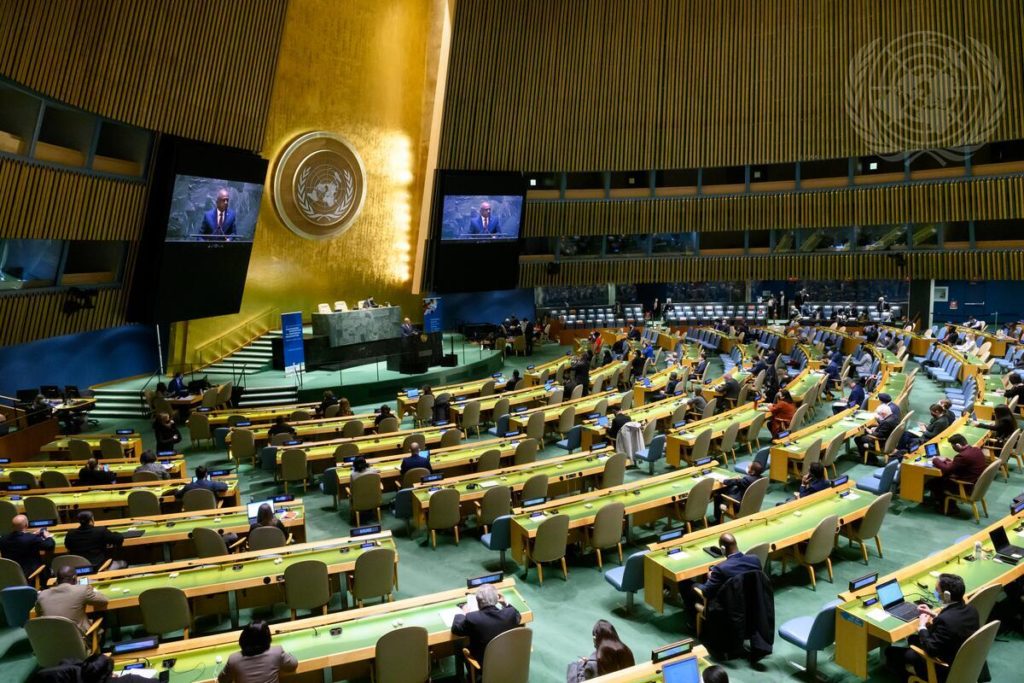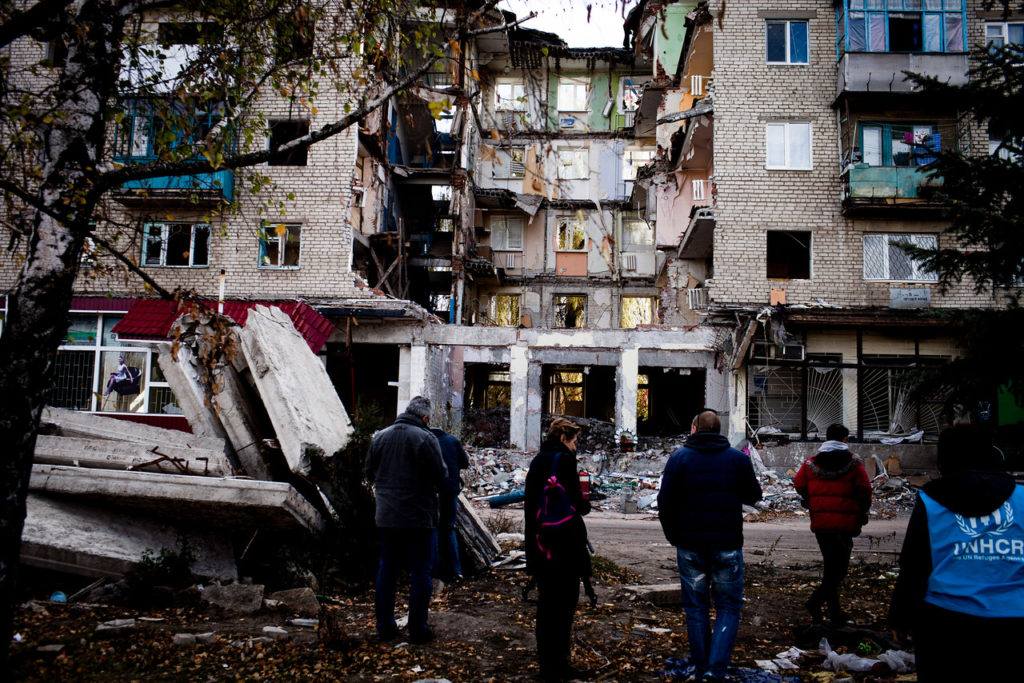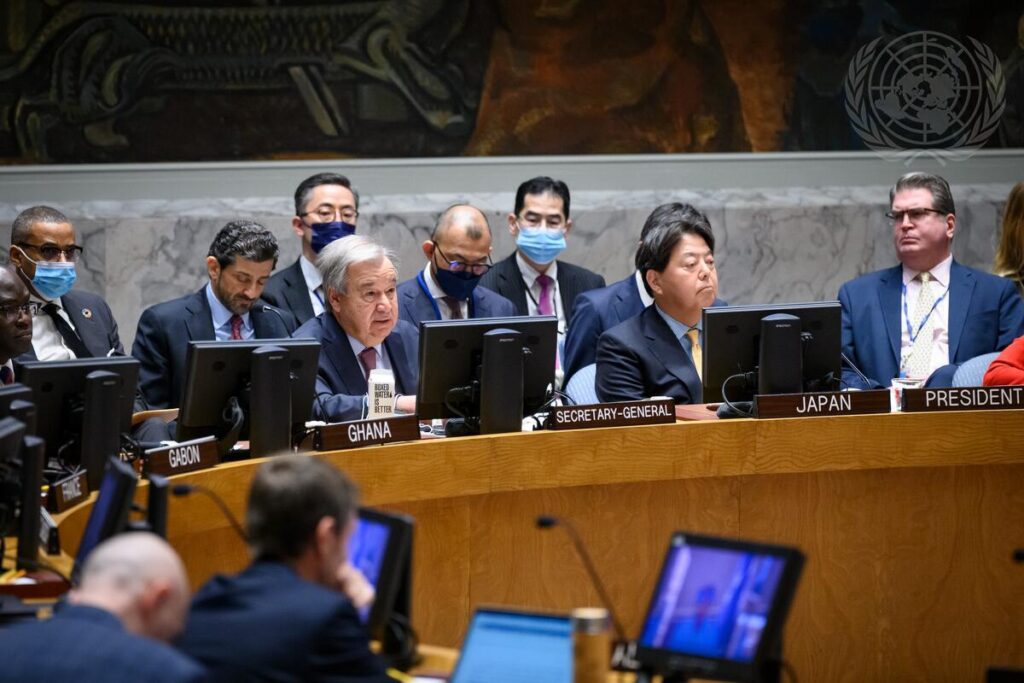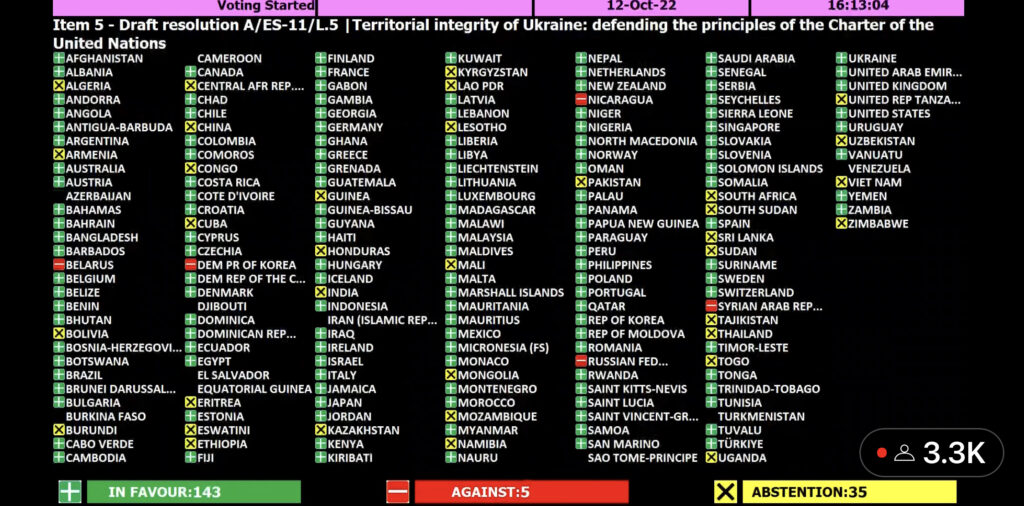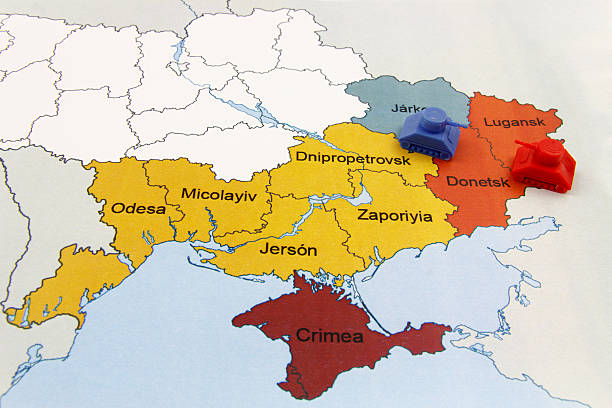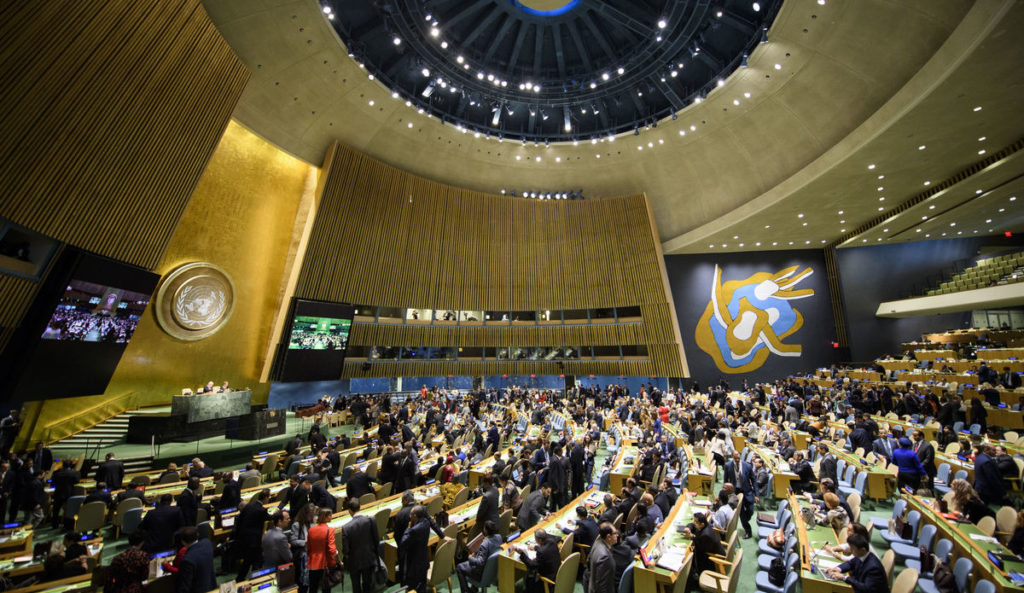UPDATE: U.N. calls for peace in Ukraine as war hits one-year mark
New York, February 23 – United Nations members voted 141 against 7 to adopt a new resolution that calls for a “comprehensive, just and lasting peace” in Ukraine in line with the principles of the U.N. Charter.
The countries that voted against are: Russia, Belarus, North Korea, Eritrea, Mali, Nicaragua and Syria
The vote took place at the end of a two-day emergency session of the U.N. General Assembly during which representatives of more than 80 countries expressed their views on the war that broke out after Russian military forces invaded Ukraine on February 24, 2022.
A total of 32 countries abstained, including China, Cuba, India, Pakistan, Vietnam and South Africa.
The resolution says efforts to end the year-old war should be consistent with the U.N. Charter, including principles of sovereignty, equality and territorial integrity of states. The resolution is titled “Principles of the Charter of the United Nations underlying a comprehensive, just and lasting peace in Ukraine” and already has wide support among the 193 nations members of the U.N.
In an address delivered to the assembly, U.N. Secretary-General Antonio Guterres said the Russian-led war is “an affront to our collective conscience. It is a violation of the U.N. Charter and international law. It is having dramatic humanitarian and human rights consequences. And the impact is being felt far beyond Ukraine.”
He said the Charter is unambiguous: “All members shall refrain in their international relations from the threat or use of force against the territorial integrity or political independence of any state, or in any other manner inconsistent with the Purposes of the United Nations.”
The resolution calls for the immediate and unconditional withdrawal of Russian forces from Ukraine’s territory and for Russia to respect the Geneva Convention relative to the treatment of prisoners of war. It also calls on warring parties to abide by international humanitarian law.
The U.N. leader said fully 40 per cent of Ukrainians need humanitarian assistance and their country’s vital infrastructure has been targeted – water, energy and heating systems have been destroyed in the dead of winter.
He said the war in Ukraine has caused the largest refugee crisis since World War Two with more than 8 million Ukrainians now surviving in neighboring countries where U.N. agencies have been cooperating with host countries to provide humanitarian assistance. The UN has launched a $5.6 billion humanitarian appeal for the people in Ukraine.
“I urge your full support,” Guterres said. “I have visited Ukraine twice since the start of the war where I heard testimonies of severe violations of international humanitarian and human rights laws.”
Ukraine’s Foreign Minister Dmytro Kuleba told the emergency special session that the resolution “will contribute to our joint efforts to bring the war to an end as well as protect the fundamental principles of international law and the U.N. Charter.”
“Never in recent history has the line between good and evil been so clear,” he said. “One country merely wants to live. The other wants to kill and destroy. There is no other country in the world that wants peace as much as Ukraine does.”
Since war broke out in Ukraine, the assembly had adopted five resolutions accusing Russia of violating the U.N. Charter and demanding an end to the war. But resolutions adopted by the assembly are not binding on its members.
Resolutions adopted in 2022
1 – The resolution on March 2 demanded an immediate Russian cease-fire, withdrawal of all its troops and protection for all civilians with a strong vote – 141-5 with 35 abstentions.
2 – On March 24, the assembly voted 140-5 with 38 abstentions on a resolution that blamed Russia for Ukraine’s humanitarian crisis and called for an immediate cease-fire and protection for millions of civilians and the homes, schools and hospitals critical to their survival.
3 – The third resolution on April 7 suspended Russia’s membership from the U.N.’s Geneva-based Human Rights Council. It said Russian soldiers in Ukraine engaged in rights violations that the United States and Ukraine have called war crimes. That vote was 93-24 with 58 abstentions.
4 – The fourth one on October 12 condemned Russia’s “attempted illegal annexation” of four Ukrainian regions with a 143-5 vote and 35 abstentions.
5 – The fifth resolution on November 14 demanded that Russia be held accountable for violating international law by invading Ukraine and it must pay reparations for widespread damage in Ukraine and for Ukrainians killed and injured in the war. The vote was 94-14 with 73 abstentions.
(By J. Tuyet Nguyen)
United Nations correspondent journalists – United Nations correspondent journalists – United Nations correspondent journalists – United Nations journalism articles – United Nations journalism articles – United Nations journalism articles – United Nations News – United Nations News – United Nations News
UPDATE: U.N. calls for peace in Ukraine as war hits one-year mark Read More »


